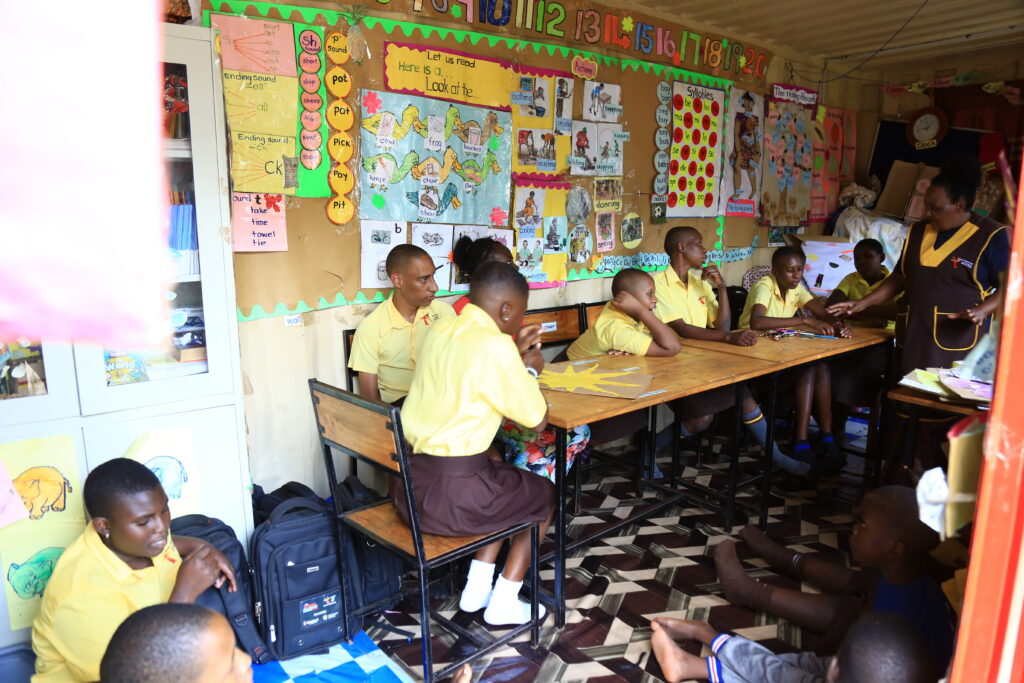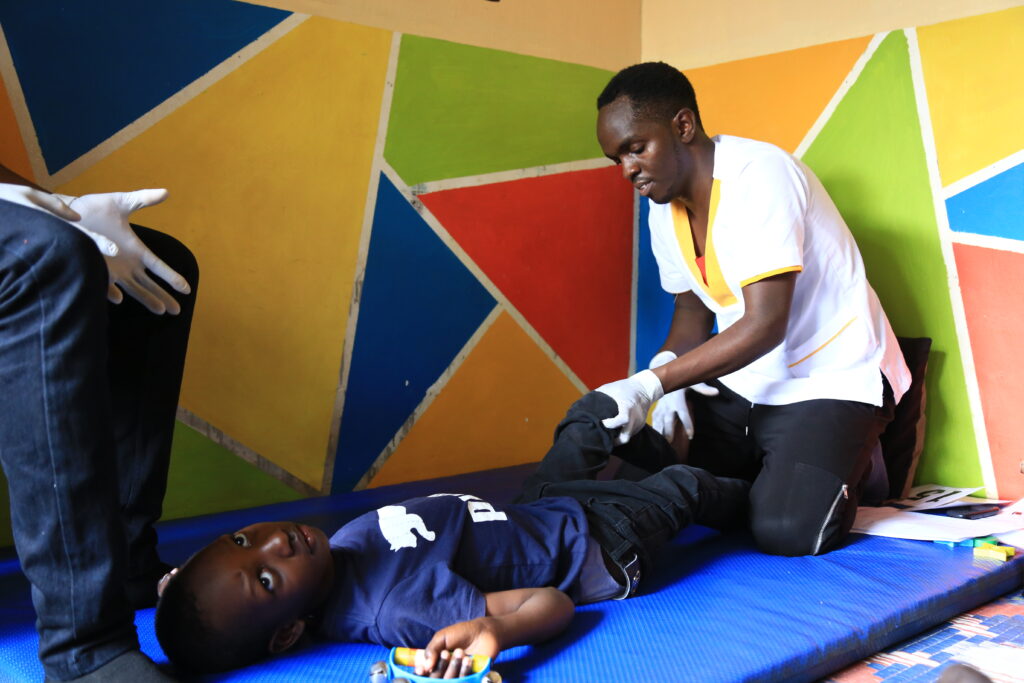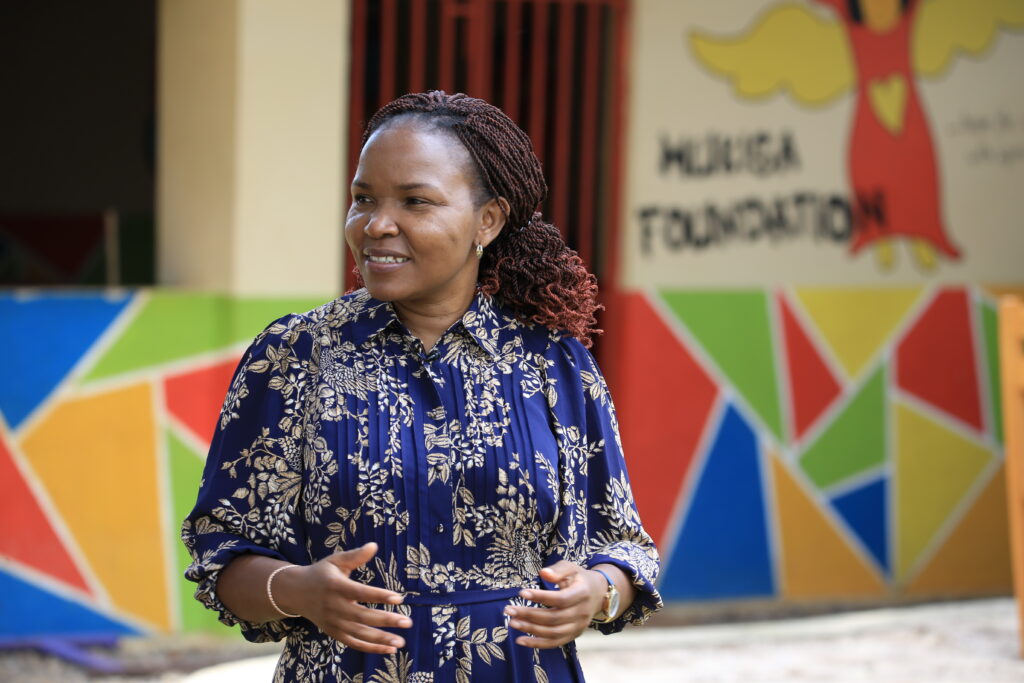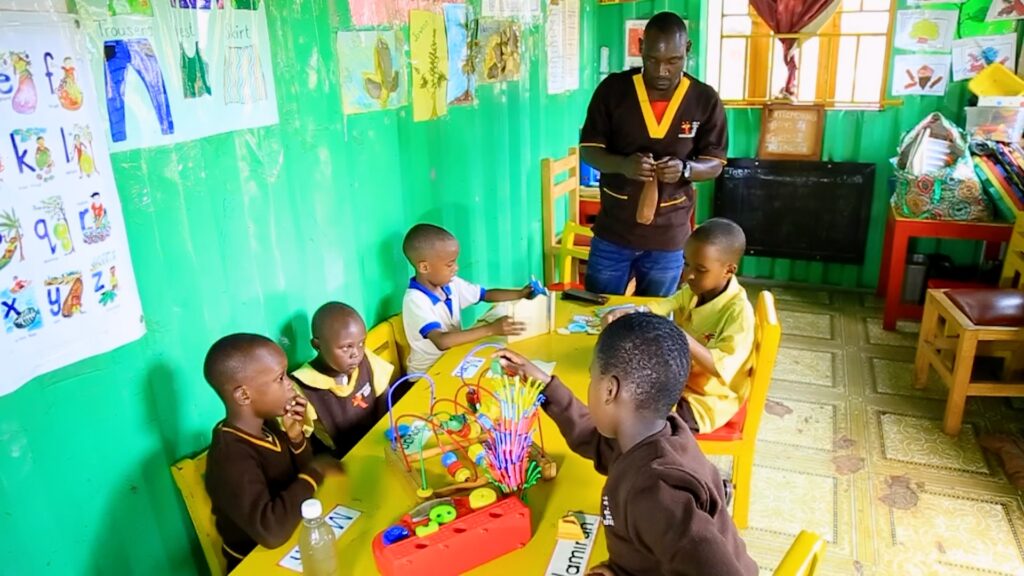Enabling Progress:
Kampala Home Redefines Care for children With Special Needs
Written by: Hellen Kabahukya. Filmed by Richard Mugambe
Written by: Hellen Kabahukya. Filmed by Richard Mugambe
At a renowned special needs center in Uganda’s capital Kampala, Grace Nalwoga, is very popular among the children for her immaculateness and graceful care. She is the epitome of the center’s story of tenderness.
She has watched most children here emerge from the ruins of social rejection, to wow their families and communities.
Nalwoga herself arrived at the Mukisa Foundation to seek support 15 years ago. Her baby, born preterm and had left incubators with permanent disabilities, was just three.
Jovia now lives with cerebral palsy, a condition most described by health workers as a group of disorders that affect a person’s ability to move and maintain balance and posture.
“Everyone at home found my child repulsive. I felt unwelcome in many aspects … and needed support,” Nalwoga explains.

Grace Nalwoga speaks to children at Mukisa Disability Center near Kampala.
The facility is a 360-home model that offers the basic needs of children living with disabilities. Between 20-30, children, mothers, and caregivers stream in every year to seek support to enable them to attain their full potential.
“We receive, assess needs then find the best way to respond. A combination of socio-economic factors sit at the core of the challenges that push many families to seek support here,” says Florence Namaganda, the founder of the charity.
In a country where the overall well-being of children with special needs is centered around the household level, segregatory traditional norms, attitudes, and beliefs limit access to education, healthcare, and other services needed for their welfare.
At the epitome of this challenge are the mothers who sit at the brunt of this social rejection. Before Nalwoga went to the charity, the burden of caregiving impeded her chance at gainful employment.
“Taking care of my daughter cost me my job because I needed to dedicate time to her. She also needed proper healthcare and that came at a cost, which I had challenges afford,” she says.

A caregiver offers therapy to a child at Mukisa Disability Center.
Special needs caregiving and service delivery gaps in Uganda remain a challenge despite the government’s effort to create enabling frameworks and policies.
About 16% of children in Uganda live with a disability but only 5% have access to education through Inclusive Schools. Datasets at the Ministry of Education suggest that most learners with special needs fail to transition from one educational level to another.
Additionally, whereas 80% of disability conditions among children can be treated, healthcare access challenges make it hard for most families especially in rural settings to try seeking them. Even where they are available, the cost makes it too difficult to bare.
Namaganda, who runs this charity believes that a sustainable approach, models and systems that mainstream disability issues could answer some of these challenges and repurpose lives for special needs children. Her organization is pioneering this idea through a home-based model.
“Every child can live a purposeful life to their full potential if given the necessary help, tools, and interventions” Namaganda explains.
In what the organization defines as a holistic approach, they run 360 rehabilitation center which covers education and skills development, counseling therapy, and community outreach to sensitize the population about discriminatory attitudes and beliefs.

Florence Namaganda, the founder of Mukisa Foundation. Photo by Richard Mugambe.
The model
When children arrive at the facility, they are assessed and given the necessary interventions in these program areas.
On issues like malnutrition, the model works with families to instill creative feeding habits where skills are shared to cultivate and produce crops which provide a better diet for the children.
For those that require therapy, the organization has an in-house therapy team which provides therapy sessions that include physiotherapy, speech and occupational therapy.
Nalwoga’s child, Jovia first arrived at the foundation, she underwent therapy to help her get mobility and speech.
“We came to the foundation when she was three years old and she was recommended therapy for the first one year. We still continue with the therapies but now she is able to do some things on her own.” Nalwoga explains.
The foundation provided for assistive devices like clutches, wheel chairs, walkers that help her mobility as she had become too heavy to carry. The devices are either donated, refurbished or custom made to fit the needs of the child.
Nalwoga was lucky, the child didn’t need surgery when she first came to the foundation, however, there are children that come with urgent healthcare needs. They are linked to partner organizations and hospitals that perform different surgeries on the children.
During the therapy and treatment period, children of school going age are enrolled into the education program dubbed the “Katch-up Class”.
Katch Up is a three-year learning program which uses pedagogical approaches to assimilate children into mainstream school. The learning schedule is definitely different from the normal school program but largely focuses on numeracy and literacy, social and life skills, concentration, and behavioural management.

An instructor speaks to children at a learning room at Mukisa Disability Center in Kampala.
Children with intellectual disabilities like autism are also enrolled into the behavioral class where they are taught how to relate and work together.
“We admit the children to the class because there’s need for them to be educated but they cannot enroll immediately to the mainstream school. So we get the children, assess them, understand their needs and admit them to the Katch up class” Teacher Trust Ariho explains.
Jovia was able to join main stream school at the age of eight(8). She was enrolled from kindergarten and has just completed her primary leaving examination where she hopes to excel with the best aggregate. She goes to a special needs school that allows her to attend class even with the inability to write due to the adverse effects of cerebral palsy that left unable to write. She speaks with difficulty but she is fluent in English and Luganda.
‘ I love my school. I have many friends. The teachers write for me on the board and I read and I don’t forget what I have been taught.” She happily explains with difficulty.
To mainstream disability challenges into social setting, Mukisa foundation is running a community outreach program whose goal is to sensitize communities on disability management, social acceptance, and capacity building especially for mothers who need economic empowerment programs alongside care giving.
It has created service and advocacy extension centers in other remote parts of Uganda where people are unable to reach them in their Kampala One of the communities where the charity’s message has sank deeply is Buusi, a tiny island in Lake Victoria, africa’s largest fresh water lake.
It has establishment a one-stop disability center which serves as a pilot for remote communities. Mothers and caregivers stream here every month to partake the services.
Nalwoga’s child has just concluded her primary school at 18, a milestone which was beyond the horizon for the family. She is now looking at the apprenticeship program to where she can get a life skill.
“For us, it has been an opportunity which I could even imagine about. I can only pay it back by serving other children at this center,” she ends by sharing the source of her passion.
© 2022 - Media Challenge Initiative | All Rights Reserved .
© 2022 - Media Challenge Initiative | All Rights Reserved .